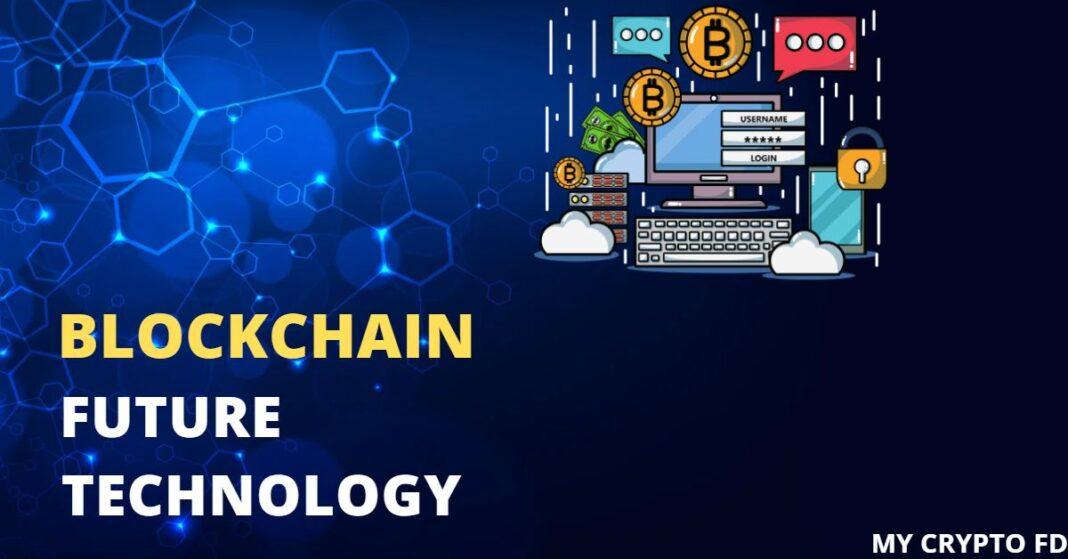Unlocking the Future: How Blockchain is Changing the Game
Blockchain technology has emerged as a revolutionary force, disrupting traditional systems and transforming various industries. This distributed ledger technology, which was originally developed as the underlying technology for cryptocurrencies like Bitcoin, has expanded its potential beyond financial transactions. Blockchain has gained popularity due to its transparency, security, and decentralized nature, which eliminates the need for intermediaries and allows for peer-to-peer transactions. In this article, we will explore the immense potential of blockchain technology and how it is changing the game in various sectors.
Introduction to Blockchain
At its core, blockchain is a distributed and decentralized ledger that records transactions or information across a network of computers in a transparent and immutable manner. Each transaction, or “block”, contains a timestamp and is linked to the previous block, forming a “chain” of blocks. This chain of blocks is maintained by a network of nodes, where each node has a copy of the entire blockchain, making it highly secure and tamper-proof.
How Blockchain Works

Blockchain uses advanced cryptography to ensure the integrity and security of data. When a new transaction is made, it is verified by multiple nodes in the network through a consensus mechanism, such as proof of work or proof of stake. Once the consensus is reached, the transaction is added to a new block, which is then linked to the previous block using a unique hash value. This creates a chronological chain of blocks, making it virtually impossible to alter or tamper with the data.
Evolution of Blockchain
Blockchain technology has come a long way since its inception. It was initially developed as the underlying technology for Bitcoin, a digital currency that aimed to eliminate the need for intermediaries in financial transactions. However, over time, blockchain has evolved and found applications in various sectors beyond finance. Today, blockchain is being used for supply chain management, healthcare, real estate, digital identity, voting systems, and intellectual property rights, among others.
Benefits of Blockchain Technology
Blockchain technology offers several benefits that are driving its widespread adoption across various industries. Some of the key benefits of blockchain include:
Transparency: Blockchain provides transparency as every transaction is recorded in a decentralized ledger that can be accessed by all participants in the network. This enhances trust and accountability among stakeholders.
Security: Blockchain uses advanced cryptography and consensus mechanisms to ensure the integrity and security of data. Once a transaction is added to the blockchain, it is virtually impossible to alter or tamper with the data, making it highly secure.
Decentralization: Blockchain eliminates the need for intermediaries, such as banks or brokers, as transactions are directly conducted between parties in a peer-to-peer manner. This reduces costs, improves efficiency, and eliminates single points of failure.
Traceability: Blockchain allows for the tracking and tracing of assets or goods throughout the supply chain, providing transparency and accountability. This can help in reducing fraud, counterfeiting, and theft.
Efficiency: Blockchain enables faster and more efficient transactions as it eliminates the need for intermediaries and streamlines processes. This can result in cost savings and improved customer experience.
Use Cases of Blockchain
Blockchain technology has found applications in various sectors, revolutionizing traditional systems and processes. Some of the prominent use cases of blockchain include:
Blockchain in Finance and Banking
Blockchain has disrupted the traditional financial industry by offering decentralized, transparent, and secure solutions. It has the potential to streamline financial transactions, reduce costs, eliminate intermediaries, and enhance security. For example, blockchain-based cryptocurrencies like Bitcoin and Ethereum have gained popularity as alternative forms of digital currencies, offering borderless transactions and decentralized financial systems. Additionally, blockchain has been used for remittances, cross-border payments, digital identity verification, and smart contracts in the financial sector.
Blockchain in Supply Chain Management
Blockchain has the potential to transform supply chain management by providing end-to-end visibility, traceability, and accountability. With blockchain, each step of the supply chain, from raw material sourcing to the final product delivery, can be recorded and verified in a transparent and immutable manner. This can help in reducing fraud, counterfeiting, and inefficiencies in the supply chain. Companies like Walmart and IBM are already using blockchain for supply chain management to ensure food safety, traceability of products, and sustainability.
Blockchain in Healthcare
Blockchain is being explored as a potential solution to some of the challenges in the healthcare industry, such as data privacy, interoperability, and patient consent management. Blockchain can securely store and share health records, ensuring data integrity and privacy. It can also facilitate interoperability between different healthcare systems, improving patient care and reducing medical errors. Moreover, blockchain can enable patients to have control over their health data, allowing them to share their data with healthcare providers based on their consent.
Blockchain in Real Estate
Blockchain has the potential to revolutionize the real estate industry by offering transparency, security, and efficiency. With blockchain, property ownership records can be stored in a decentralized ledger, eliminating the need for paper-based documents and reducing fraud. Blockchain can also streamline property transactions, such as title transfers, property listings, and rental agreements, by automating processes and reducing intermediaries. This can result in cost savings, faster transactions, and increased transparency in the real estate market.
Blockchain in Digital Identity
Blockchain can provide a secure and decentralized solution for digital identity verification, eliminating the need for central authorities and reducing the risk of identity theft. With blockchain, individuals can have control over their personal data and share their identity information with trusted parties based on their consent. Blockchain-based digital identities can be used for various purposes, such as online authentication, access control, and financial transactions. Governments and organizations are exploring the use of blockchain for digital identity management to enhance security and privacy.
Blockchain in Voting Systems
Blockchain has the potential to revolutionize voting systems by providing transparency, security, and immutability. With blockchain, each vote can be recorded as a transaction in a decentralized ledger, ensuring transparency and preventing tampering. This can enhance trust in the voting process and reduce the risk of voter fraud. Blockchain-based voting systems can also increase accessibility, as votes can be cast remotely using digital wallets, and can potentially reduce the costs and complexities associated with traditional voting methods.
Blockchain in Intellectual Property Rights
Blockchain can offer a decentralized and transparent solution for managing intellectual property rights, such as copyrights, patents, and trademarks. With blockchain, the ownership and transfer of intellectual property can be recorded in a tamper-proof and transparent manner, ensuring protection and attribution. This can help in reducing disputes, fraud, and infringement cases in the field of intellectual property. Blockchain-based intellectual property rights management can also enable creators and innovators to have control over their intellectual property and receive fair compensation for their work.
Challenges and Limitations of Blockchain
While blockchain technology offers numerous benefits, it also faces challenges and limitations that must be addressed for wider adoption. Some of the challenges and limitations of blockchain include:
Scalability
Blockchain technology is currently facing scalability issues, with some blockchain networks experiencing slow transaction times and high transaction fees. As the number of users and transactions on a blockchain network increases, it can lead to congestion and delays in processing transactions. This poses a challenge for blockchain to handle large-scale transactions efficiently, especially in industries that require high transaction volumes, such as finance and supply chain management.
Regulations and Legal Frameworks
Blockchain technology is still in its nascent stage, and there is a lack of comprehensive regulations and legal frameworks to govern its use. The legal status of blockchain-based transactions, smart contracts, and digital assets varies across different jurisdictions, which can create uncertainty for businesses and users. Moreover, compliance with existing regulations, such as data privacy and anti-money laundering laws, can be challenging in the context of blockchain, as it involves the decentralized and borderless nature of the technology.
Interoperability
Interoperability, or the ability of different blockchain networks to communicate and share data with each other seamlessly, is another challenge for blockchain technology. Currently, most blockchain networks operate in isolation, and there is a lack of standardized protocols and frameworks for interoperability. This can hinder the seamless exchange of information and value between different blockchain networks, limiting their potential for widespread adoption and use in interconnected systems.
Energy Consumption
Blockchain technology relies on a consensus mechanism, such as proof-of-work (PoW), which requires significant computational power and energy consumption. This can result in high energy consumption, leading to environmental concerns and sustainability issues. As the awareness about environmental impact increases, there is a need for more sustainable consensus mechanisms and energy-efficient solutions in blockchain technology.
Education and Awareness
Blockchain technology is complex and requires a good understanding of its technical aspects to leverage its potential fully. However, there is a lack of awareness and education about blockchain among businesses, users, and policymakers. This can hinder the adoption of blockchain technology in various industries, as there may be a reluctance to adopt a technology that is not fully understood. Education and awareness about blockchain, its benefits, and its limitations are crucial for its wider adoption and integration into existing systems.
Conclusion
Blockchain technology has emerged as a disruptive force that is changing the game across various industries. Its decentralized, transparent, and secure nature offers numerous benefits, such as increased efficiency, reduced costs, enhanced security, and improved trust. Blockchain has found applications in finance, supply chain management, healthcare, real estate, digital identity, voting systems, and intellectual property rights, among others. However, blockchain also faces challenges and limitations, such as scalability, regulations, interoperability, energy consumption, and education. Addressing these challenges will be crucial for realizing the full potential of blockchain technology.
FAQs (Frequently Asked Questions)
What is blockchain technology?
Blockchain technology is a decentralized, transparent, and secure ledger that records transactions and data in a tamper-proof manner.
What are the advantages of using blockchain?
Some of the advantages of using blockchain include increased efficiency, reduced costs, enhanced security, improved transparency, and enhanced trust.
What are some use cases of blockchain?
Blockchain has found applications in finance, supply chain management, healthcare, real estate, digital identity, voting systems, intellectual property rights, and many other industries.
What are the challenges of blockchain?
Some of the challenges of blockchain include scalability, regulations, interoperability, energy consumption, and education.
How can blockchain be made more sustainable?
Blockchain can be made more sustainable by exploring alternative consensus mechanisms such as proof-of-stake (PoS) or delegated proof-of-stake (DPoS), which require significantly less energy compared to traditional proof-of-work (PoW) consensus. Additionally, implementing energy-efficient infrastructure and practices, such as utilizing renewable energy sources, can also contribute to making blockchain more sustainable.
In conclusion, blockchain technology is transforming various industries by offering decentralized, transparent, and secure solutions. Despite its challenges, such as scalability, regulations, interoperability, energy consumption, and education, the potential of blockchain is immense. As technology continues to evolve and gain wider adoption, it has the power to revolutionize industries and unlock new opportunities for the future.
Also read:-ABOUT NFT

